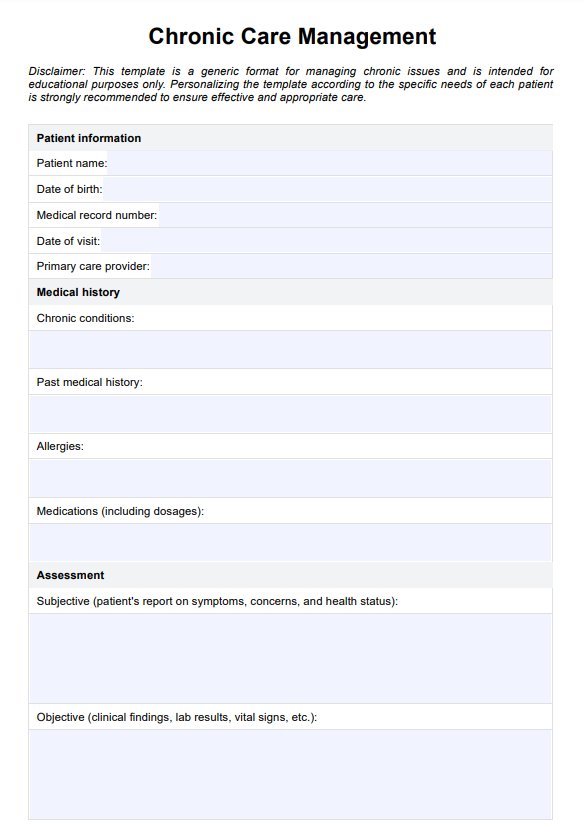A chronic care management care plan is a comprehensive document that outlines the specific strategies and interventions needed to manage chronic conditions effectively. It includes individualized goals, medication management, and scheduled follow-ups to ensure continuous monitoring and support.

Chronic Care Management Template
Get access to a free Chronic Care Management Template and help patients manage their conditions effectively.
Chronic Care Management Template Template
Commonly asked questions
Chronic care management includes various components such as regular health assessments, medication management, coordination with multiple healthcare providers, and patient education. The goal is to create a holistic approach that empowers patients to manage their health and improve their quality of life.
The criteria for chronic care management (CCM) typically involve having two or more chronic conditions expected to last at least 12 months and requiring ongoing medical attention. Additionally, patients must agree to the care management services, allowing healthcare providers to deliver coordinated care tailored to their specific needs.
EHR and practice management software
Get started for free
*No credit card required
Free
$0/usd
Unlimited clients
Telehealth
1GB of storage
Client portal text
Automated billing and online payments











